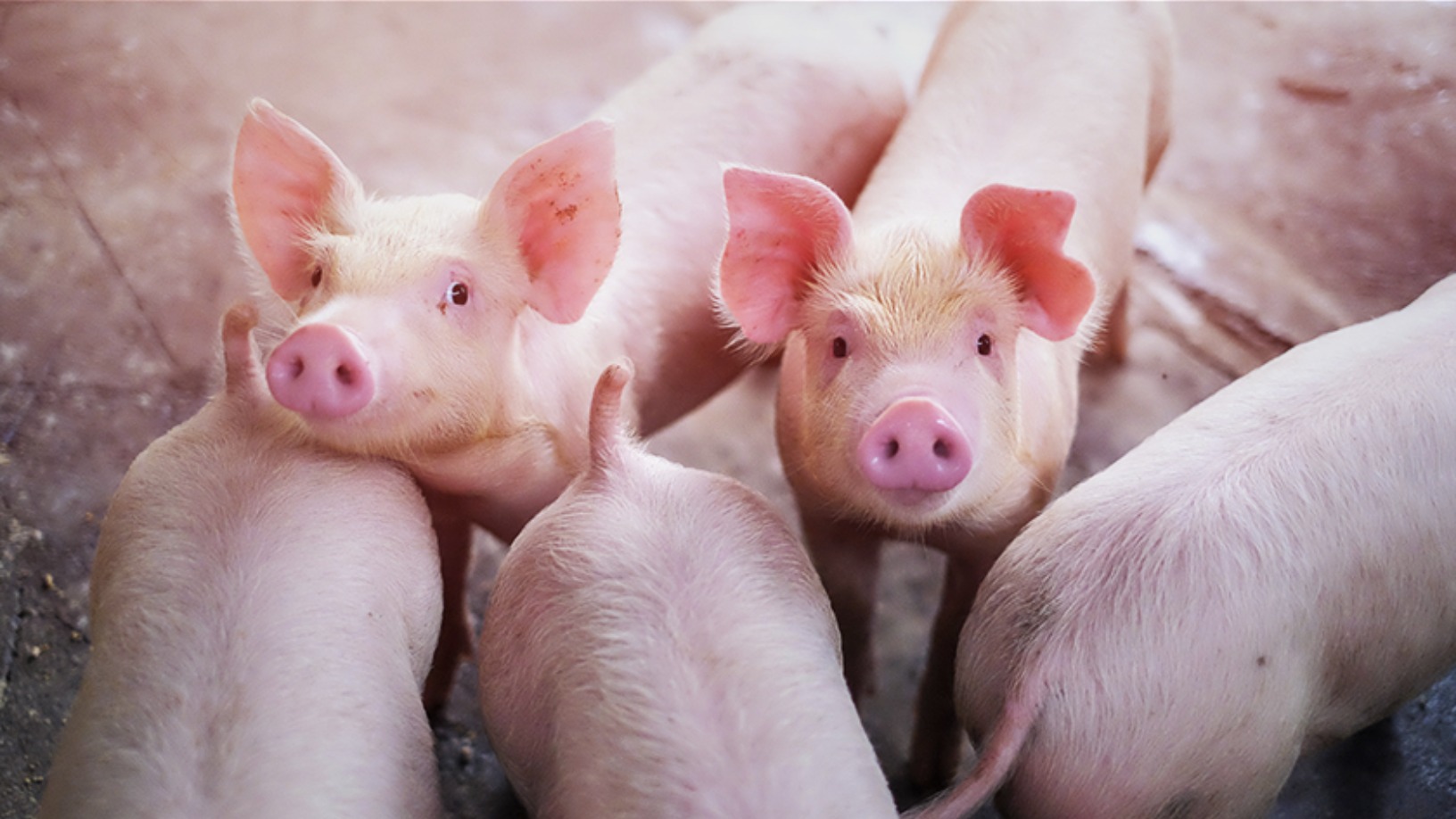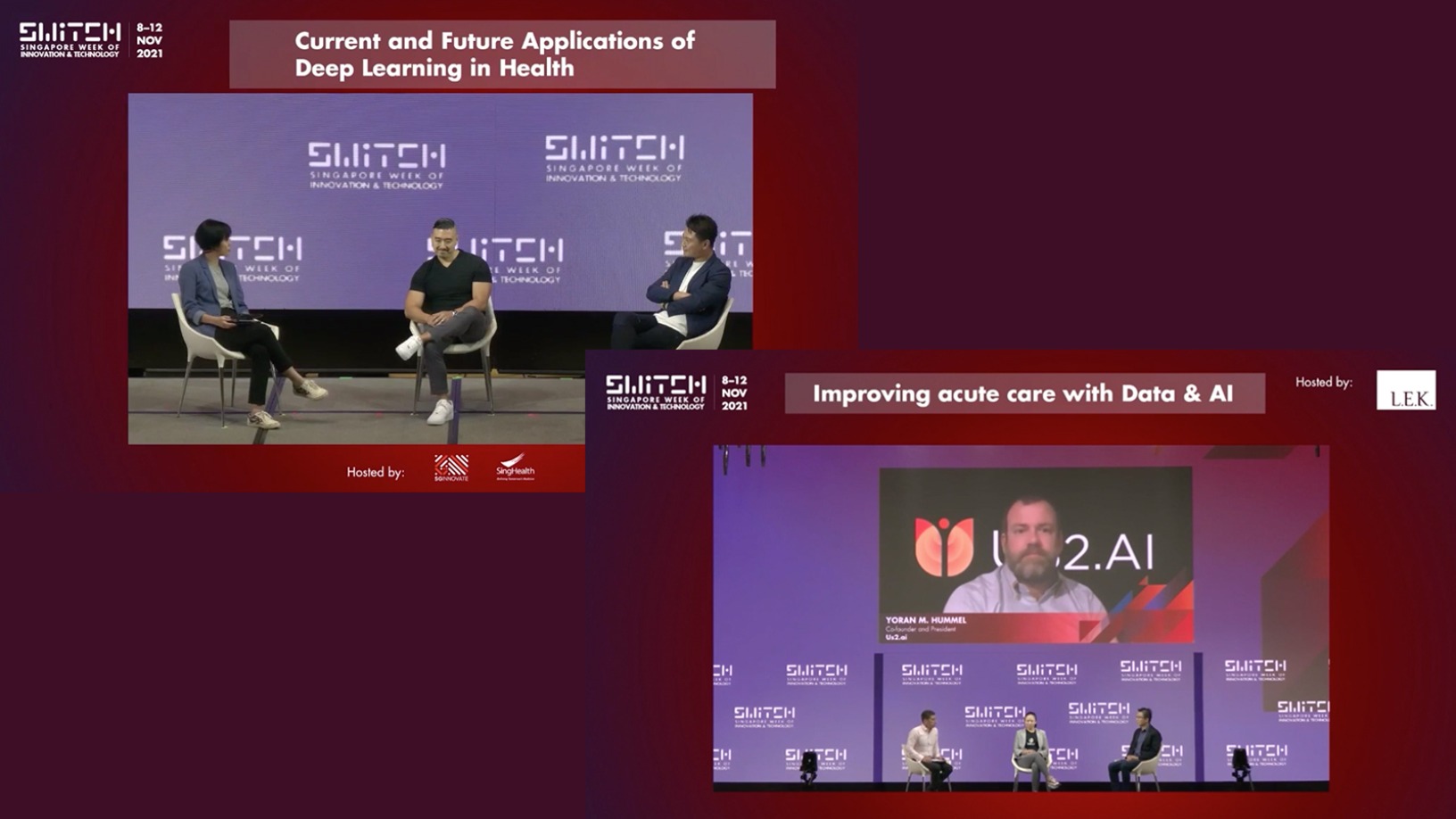Most pig farms in China rely heavily on human experience to gauge the health or ovulation time of their livestock, risking misjudgment that could cause the spread of diseases and even death. Labor-intensive pig farming can also lead to transmission of viruses from pigs to humans.
Agritech startup SmartAHC, which stands for Smart Animal Husbandry Care, wants to change all that by tagging every pig with a smart, wearable sensor, as part of its big data, AI-based farm management system with predictive analytics. The wearables collect real-time data tracking the pigs’ physical condition, growth and reproduction status. This data goes straight to the cloud, enabling farmers to act on any issue without actually being on the farm to check on each animal.
In July, the company secured A+ funding, raising an undisclosed sum from chemical supplier BASF Venture Capital, Evonik Venture Capital and Sinoagri E-commerce. The funding came amid growing concerns about pork supply and prices in China, the world’s biggest market for pork with about 700m pigs slaughtered every year. The price of pork almost doubled this July from a year ago.
The company’s CEO, Lan Song, founded SmartAHC in 2014 while he was pursuing a PhD in integrated circuit design in Singapore at the Nanyang Technological University (NTU). He was inspired by wearables used to monitor the temperatures of babies and was keen to use similar wearable devices to increase efficiency in animal husbandry.
SmartAHC was incubated at NTU, and went on to raise funding from investors such as Smart World Group Incubator, National Research Foundation of Singapore, Greenmeadows accelerator, Singapore Spring, Continental Grain Company Venture and local angel investor Koh Boon Hwee.
Lan, who comes from a family of livestock farmers, returned to China in 2016, where he and his team kept four pigs in the suburbs of Shanghai to test their new “animal wearables" concept. Today, SmartAHC’s products are attached to over 8m pigs across China.
Cuts labor costs by two-thirds
SmartAHC’s RoiDOC sensors monitor pigs’ body temperature 24/7 and, from the temperature changes, indicate if the pigs are ill or ovulating. Such physiological data goes to the cloud-based system, where algorithms run and anticipate when the animals are ready to breed. This guides breeding operations, increasing the number of piglets per sow per year (PSY) by three to five on average.
Farmers also do not always know exactly how many pigs they have on their farms or their pigs’ weight. To solve that problem, SmartAHC has rolled out another system called RoiVISION, which uses computer vision and geospatial data reasoning technologies, to count the number of pigs, estimate the weight of each pig and monitor their growth.
By identifying each pig and its behavioral features and recording its growth and eating habits, the system gives farmers the up-to-date information they need to improve farm efficiency. For instance, from tracking the weight of their pigs, farmers know when to reduce feed, hence spending less to achieve the same level of production.
“By analyzing data, we found the pigs in one client’s farm had grown very slowly during the previous 10 days,” said Lan. “It’s hard for workers to spot the issue without counting every pig’s weight every day. Beyond that, we figured out the reason behind the problem was lowerenvironmental temperature.”
Using SmartAHC’s system, a farm with 200,000 pigs, which in the past required about 70 workers to sustain its operations, can reduce its labor cost by two thirds. One listed pig farming company saw its revenue increase by RMB 40–60 per animal after using SmartAHC's system in its farm of over 3m pigs.
The company also provides another type of ear tags for pigs called RoiTAG. Priced at RMB 6 each, these tags can provide a full digital profile of each pig, its parents and offsprings, which is critical data for breeding. In the past, local governments lacked data on the total number of pigs or data on future supply but smart tags can now collect such data, increasing the accuracy of statistics.
Lower insurance risks
In traditional pig farming business, it’s not uncommon for some opportunistic farmers to purchase insurance for only some of their pigs to save money. The farmer can claim insurance for any dead pig as insurance companies are unable to identify the insured pigs. Many insurance companies were therefore unwilling to provide cover.
SmartAHC’s ear tags can not only identify each pig but will also automatically self-destruct if removed or exchanged. The company now sells most of its smart ear tags to insurance companies, banks and government bodies that provide the devices to their clients or pig farmers within their administrative regions and require their usage, increasing the effectiveness of asset evaluation, supervision and regulation.
SmartAHC has already partnered big insurance companies like PICC and Ping’An and the result was a drop in claims by 33.8% after insured animals were ear tagged, saving insurance companies RMB 1,000 per farm animal. Currently, SmartAHC’s technology also helps insurance companies to track 300,000 yaks.
At its funding announcement in July, SmartAHC also unveiled its joint venture with investor Sinoagri E-Commerce to help small and mid-sized farms get loans. With their huge capital expenditure, these farms are the mainstay of China’s pig farming industry but lenders tend to provide credit lines only to large corporations . But with digital identification of pigs reducing the risks of the business, financial institutions are more willing to offer loans to the smaller farms.
“We have used technical approaches to resolve [specific] problems in the past. From now onward, we will focus on the whole industry to improve the efficiency of its entire supply chain,” Lan said.












